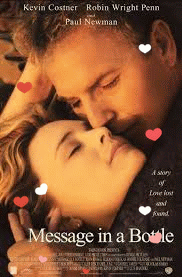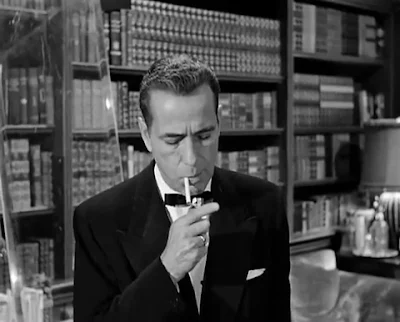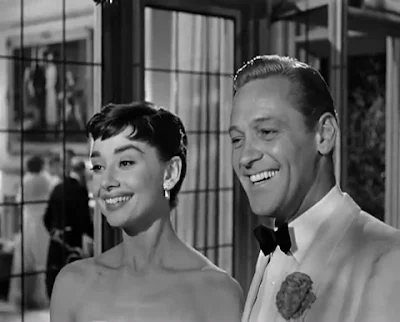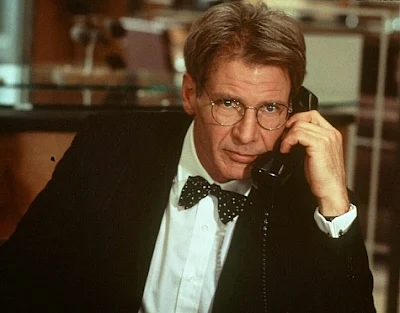Every year on the first week of May, the International Book Fair is held at the University of Lagos’ multi-purpose hall. After buying a few books; I attended the writer’s forum. There were several writers, lecturers and a few journalists present and the topic discussed after “Social Responsibility & Activism” was about Chinua Achebe’s second book,
No Longer at Ease. This novel was published two years after
Things Fall Apart and it depicted pre-independence life in Lagos in the fifties; the age of colonialism and corruption. But what was talked about at the forum was “Chinua Achebe & the Osu Caste System in No Longer at Ease”. Professor Achebe described what an Osu was in his first novel,
Things Fall Apart.
“He was a person dedicated to a god, a thing set apart- a taboo forever, and his children after him. He could neither marry nor be married by the free born. He was in fact an outcast, living in a special area of the village, close to the Great Shrine.” –
Things Fall Apart, chapter 18, pgs 113-114; African Writers’ Series, Heinemann.
No Longer At Ease is set many years after the missionaries and the British Government first arrived in Nigeria; bringing with it Western Education, Christianity and Colonialism. The protagonist is Okonkwo’s grandson, Obi- the son of Okonkwo’s first son Nwoye who was given the name Isaac after he embraced Christianity and the ‘white man’s book’- as education was called back then. Obi is the first son of Umoufia to win a scholarship to study in England so a lot of hopes and aspirations are on him. Obi meets a lovely girl at a dance, Clara Okeke and they fall in love. However, Clara drops a bombshell one night, she is an Osu and therefore can’t marry Obi or rather, Obi can’t marry her. Obi is taken aback but doesn’t care about that and assures her he will handle his family and they’ll get married. The first person he tells about this was a friend who was also from Umoufia, Joseph. Joseph hits the roof when Obi said he was still going to marry Clara despite her ‘status’.
What was discussed at the forum was why Professor Achebe wrote about this; if he was trying to state his own stand about the “outcasts” or to start a conversation about the whole Osu stigmatisation. I read this book several years ago and I was filled with contempt for this Osu thing; I probably would’ve been even if I was an Igbo and not a Yoruba woman. Such beliefs and practises are so archaic and you would think that it would’ve been discarded ages ago, after the advent of Christianity and western education!
Joseph’s words to Obi after his first reaction:
“You know book, but this is no matter for book. Do you know what an Osu is? But how can you know?”-
No Longer At Ease, chapter 7, pg 64; African Writers’ Series, Heinemann.
With those words, he was trying to say Obi’s ‘mission-house’ upbringing (Obi’s parents were staunch and educated Christians) and European education had made him a stranger in his own country. Obi was ignorant to the traditional customs, according to Joseph. The book also informed and reminded the reader that when a woman marries a man, she is married to the entire family, hence her family tree and reputation is very important. Joseph says to Obi:
“Look at me, Obi. What you are going to do concerns not only yourself and future generations. If one finger brings oil, it soils the other. In future, when we are all civilized, anybody may marry anybody. But that time has not come. We of this generation are only pioneers.”
Obi’s reply,
“What is a pioneer? Someone who shows the way. That is what I am doing. Anyway, it is too late to change now.”
“It is not. What is an engagement ring? Our fathers did not marry with rings.” -
No Longer At Ease, chapter 7, pgs 67-68; African Writers’ Series, Heinemann. Two different men are seen here. Obi is the modern, liberal man, open minded and a pioneer of change; doing away with the outdated beliefs. But Joseph is the typical Igbo man, stuck in the past and its outdated norms.
Obi however stood firm in his decision to marry Clara, despite her own reservations; even buying her an engagement ring, along with a Bible; feeling sure at least his parents would side with him. Mrs. Hannah was a devout Christian and his father was a retired catechist. Personally, I thought Mr. Isaac (Nwoye) would be his son’s ally, when I read it the first time. In
Things Fall Apart, Nwoye began questioning his clan’s customs and traditions after his foster brother; Ikemefuna was killed, as ‘pronounced’ by The Oracle of the Hills and the Caves. Even though he was warned not to bear a hand in his death, Okonkwo was the one who delivered the fatal blow on the boy, with his machete; not wanting- as always- to be thought weak. That was the final nail on Nwoye’s disillusionment. He had begun having doubts about their beliefs long before, when he heard the sound of a baby crying in the thick forest. At that time, twins were regarded as evil so they were thrown into the Evil Forest to die there. Something had snapped within him and did again the night Ikemefuna died.
So when the missionaries arrived many years later, Nwoye joined the converts and became Isaac. Okonkwo cursed him for it and because Isaac never forgave Okonkwo for killing Ikemefuna, he didn’t return home for Okonkwo's burial; even though his teacher Mr. Braddeley urged him to go.
In
No Longer At Ease, Isaac Okonkwo is an old man; retired from the church and we see him as a man who has done away with several ‘heathen’ customs. He wouldn’t allow invocations to be said over the breaking of kola, he forbade folk-stories as “stories like that are not for the people of the church.”
So I was full of confidence Isaac would side with Obi. Joseph played the telltale by informing the President of the Umoufia Progressive Union and word spread round about Obi’s Osu fiancée. The President was really patronizing,
“You know book. But book stands by itself and experience stands by itself. So I am not afraid to talk to you.”
Obi was of course very angry when Clara and her ‘doubtful ancestry’ was brought up during the Union’s meeting and he stormed out; he and Clara refusing to speak to Joseph from then on.
With everyone’s objections towards Clara, the readers wait with bated breath for Obi’s parents’ stance. Joseph informed Isaac in a letter about Obi and Clara. Isaac tells his son he can’t marry ‘that girl.’ Obi is shocked at his father; he thought he knew him and for heaven’s sake, the man was a retired catechist! He argued:
“I don’t think it matters. We are Christians.”
Isaac after all shed off all the practices he regarded as ‘heathen.’ Wasn’t this objection towards Clara one too?
But Isaac is disappointingly resolute.
“We are Christians, but that is no reason to marry an Osu.”
Obi:
“The Bible says that in Christ there are no bond or free.”
Isaac:
“My son, I understand what you say. But this thing is deeper then you think.”
Obi:
“What is this thing? Our fathers in their darkness and ignorance called an innocent man an Osu, a thing given to idols and thereafter he became an outcast, and his children, and his children’s children forever. But have we not seen the light of the Gospel?” -
No Longer At Ease, chapter 14, pgs 120-121; African Writers’ Series, Heinemann.
Good argument from Obi, one would say and as a man of the church, such a speech would strike a chord in Isaac; who went out of his way to become a Christian, shedding all the ‘heathen practices’, motivated by what happened to Ikemefuna. But no, Isaac still didn’t agree.
“Naaman, captain of the host of Syria, was a great man and honourable, he was also a mighty man of valour, but he was a leper. Osu is like leprosy in the minds of our people. I beg of you my son, not to bring the mark of shame and of leprosy into our family. If you do, your children and your children’s children unto the third and fourth generations will curse your memory.” No Longer At Ease, chapter 14, pg 121; African Writers’ Series, Heinemann.
Even with his education and religion, Isaac was still an Igbo man at heart, unable to shed off that particular archaic belief and actually comparing Clara with a biblical figure. Did he conveniently forget that Naaman was cured of the leprosy by God? And what’s the point of getting baptized and call yourself a Christian when you say “this thing is deeper than you think”?
Hannah, Obi’s dying mother added her own,
“If you want to marry this girl, you must wait until I’m no more. If God hears my prayers, you will not wait long. But if you do the thing while I’m alive, you will have my blood on your head, because I shall kill myself.” No Longer At Ease, chapter 14, pg 123; African Writers’ Series, Heinemann. Yet this was the same woman who told her children not to accept “heathen food” and who cut off the head of a ‘sacred’ goat that wandered into her kitchen and ate up the yam she was preparing to cook- and received angry threats and for a while ostracised.
What therefore was Professor Achebe trying to tell the readers? That despite Christianity and Western Education, the Igbo still retain the ‘traditional/cultural mentality’ about certain things? Or that cultural beliefs are more significant than the ‘white man’s’ teaching; Isaac pointed out to Obi that the matter was deeper than he thought, even though he is a staunch Christian. Apparently, Isaac is an Igbo man first.
It can’t be said that Western Education and Religion didn’t civilize Africa, because it did. But In
No Longer At Ease, it can be seen that culture has more priority than religion and despite it being many years since the missionaries’ first arrival; there are some beliefs that can’t or refused to be cast aside. How strange it is that in the novel, those who are fortunate enough to get an education and have Christian names lord over those who don’t (except Obi) yet in the eyes of the rest of the world; reading about this attitude, they are hypocrites who may be educated yet are still so backward in their thinking.






.jpg)

.jpg)


.jpg)















